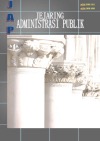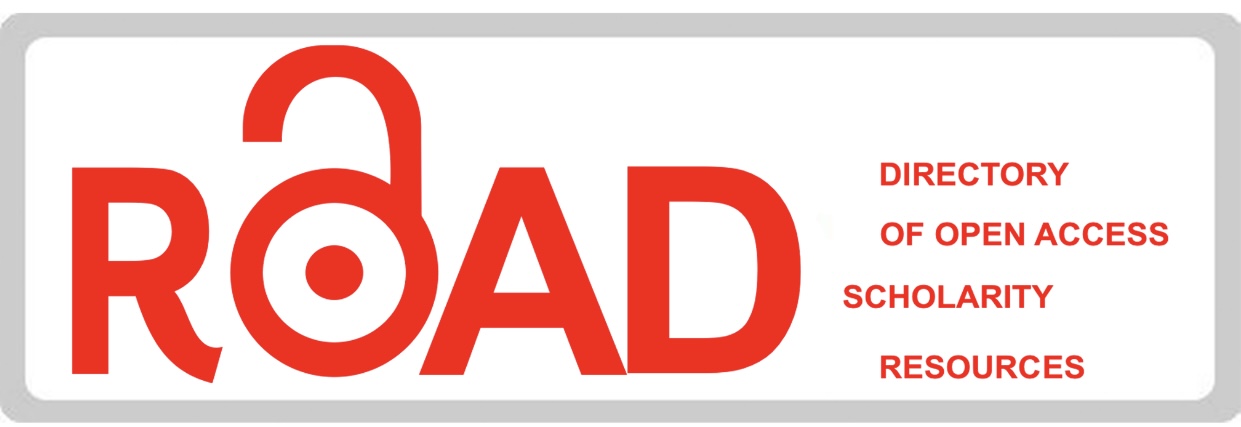Mission-Oriented Innovation Policy: E-Government Development Trajectory in Indonesia's Bureaucratic Reform
Downloads
The complex and evaluative nature of bureaucracy in Indonesia has posed significant challenges in its implementation. In response, the Indonesian government has prioritized the digitalization of government administration through the adoption of the e-government system. This paper investigates the trajectory of the e-government system in Indonesia, with a specific focus on Sistem Pemerintah Berbasis Elektronik (SPBE) as a pivotal element of the mission-oriented innovation policy. Through a thorough literature analysis, this study emphasizes the importance of embracing a mission-oriented strategy to effectively address governance issues and foster innovation. Additionally, it explores the roles of key actors involved in the policy process and examines the diverse factors that influence policy outcomes. The findings highlight the instrumental role of the maturity index in policy implementation and its impact on achieving policy objectives. Furthermore, this paper discusses the various challenges and opportunities arising in the context of e-government implementation in Indonesia.
Keywords: Mission-Oriented, Innovation Policy, E-Government, Bureaucratic Reform
Ferraro, F., Etzion, D., & Gehman, J. (2015). Tackling Grand Challenges Pragmatically: Robust Action Revisited. Organization Studies, 36(3), 363–390. https://doi.org/10.1177/0170840614563742
Hayati, D. N., & Gewati, M. (2022). Bupati Dony Sebut Digital Services Living Lab sebagai Solusi Tingkatkan Indeks SPBE. Kompas.Com. https://regional.kompas.com/read/2022/11/11/09390351/bupati-dony-sebut-digital-services-living-lab-sebagai-solusi-tingkatkan
Höpfl, H. M. (2006). Post"bureaucracy and Weber's "modern” bureaucrat. Journal of Organizational Change Management, 19(1), 8–21. https://doi.org/10.1108/09534810610643659
Humas Menpanrb. (2020). Sistem Pemerintahan Berbasis Elektronik (SPBE). Kementerian Pendayagunaan Aparatur Negara dan Reformasi Birokrasi. https://www.menpan.go.id/site/kelembagaan/sistem-pemerintahan-berbasis-elektronik-spbe
Humas Menpanrb. (2022). Peran Penting DGCC Dalam Perkembangan SPBE di Indonesia. panrb. https://menpan.go.id/site/berita-terkini/peran-penting-dgcc-dalam-perkembangan-spbe-di-indonesia
Kemp, R. (2020). A mission-oriented approach to innovation policy. Science and Public Policy, 74(1).
Larrue, P. (2021). The design and implementation of mission-oriented innovation policies. 100. https://doi.org/10.1787/3f6c76a4-en
Luo, D., & Zhang, Y. (2020). Policy Tool Model and Its Application in the Governance of Characteristic Towns. Open Journal of Social Sciences, 08(07), 232–244. https://doi.org/10.4236/jss.2020.87019
Mazzucato, M. (2013). The entrepreneurial state: Debunking public vs. private sector myths (Rev. ed). Anthem Press.
Mazzucato, M. (2018a). Mission-oriented innovation policies: Challenges and opportunities. Industrial and Corporate Change, 27(5), 803–815. https://doi.org/10.1093/icc/dty034
Mazzucato, M. (2018b). The value of everything: Making and taking in the global economy. Allen Lane, an imprint of Penguin Books.
Mazzucato, M. (2019). Governing Missions in the European Union. https://research-and-innovation.ec.europa.eu/knowledge-publications-tools-and-data/publications/all-publications/governing-missions-european-union_en
Mazzucato, M., & Dibb, G. (2019). Missions: A Beginner's Guide. UCL Institute for Innovation and Public Purpose, Policy Brief Series (IIPP PB 09).
Pangaribuan, A. M. A. (2022). Cooperation and Non-Cooperation in Indonesian Criminal Case Processing: Ego Sektoral in Action [Dissertation, University of Washington]. https://www.proquest.com/openview/d9ee201be280b0c0fc6bff8f6b4e9917/1?pq-origsite=gscholar&cbl=18750&diss=y
Rozikin, M., Hesty, W., & Sulikah, S. (2020). Kolaborasi dan E-Literacy: Kunci Keberhasilan Inovasi E-Government Pemerintah Daerah. Jurnal Borneo Administrator, 16(1), 61–80. https://doi.org/10.24258/jba.v16i1.603
Yin, R. K. (2018). Case study research and applications: Design and methods (Sixth edition). SAGE.
Copyright (c) 2023 Regina Manjali

This work is licensed under a Creative Commons Attribution-ShareAlike 4.0 International License.
All articles submitted by the author and published in the Jejaring Administrasi Publik are fully copyrighted to their authors under the Creative Commons Attribution-ShareAlike 4.0 International License. The formal legal aspect of journal publication accessibility refers to the Creative Commons Attribution-ShareAlike (CC BY-SA).















